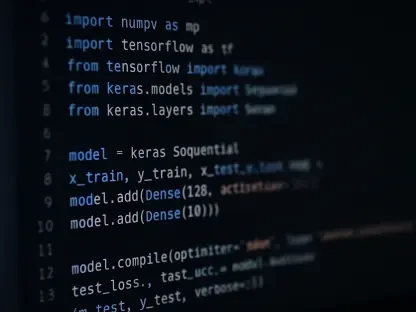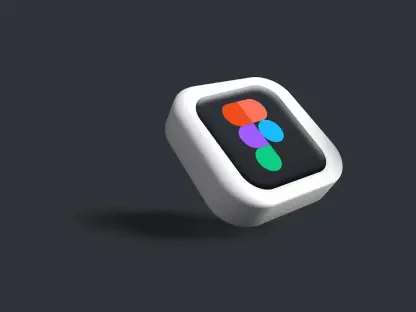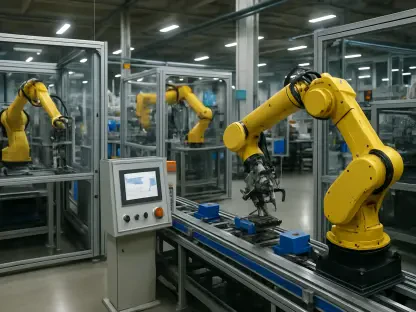In a significant technological advancement, Tether recently introduced its Local AI SDK, a development kit designed with a strong emphasis on privacy and peer-to-peer (P2P) technology. This innovative SDK was officially announced by Tether’s CEO, Paolo Ardoino, during the Lugano Plan ₿ event in Switzerland. With a versatile range of applications, the Local AI SDK aims to democratize AI technology by making it compatible with various devices—from low-cost $40 phones to high-performance systems outfitted with #00 processors.
Emphasis on Privacy and Local Data Processing
Local Data Processing Keeps User Information Safe
One of the most striking features of Tether’s Local AI SDK is its focus on maintaining user privacy. Unlike many existing AI solutions that process data by sending it to cloud servers, this SDK operates locally on the device, effectively eliminating the need for third-party data sharing. Consequently, users retain full control over their data, significantly reducing the risk of breaches and unauthorized access. This local processing capability is particularly attractive for enterprises and individuals who prioritize data security but still want to leverage advanced AI functionalities.
The modular design of the SDK further reinforces this commitment to privacy. It supports various AI models such as Marian and Llama, offering developers the flexibility to choose models that best fit their specific use cases while ensuring data remains secure on the device. Additionally, the Local AI SDK allows for the storage and transfer of AI model weights and fine-tuning data within P2P frameworks. This feature not only strengthens data security but also facilitates seamless AI model updates and sharing without relying on centralized infrastructure.
Versatile Applications Across Multiple Industries
Beyond traditional computing environments, the Local AI SDK showcases impressive versatility in its applications. During the Lugano Plan ₿ event, Paolo Ardoino demonstrated the SDK’s capabilities in various domains, including smart home appliances and automotive systems. For instance, Ardoino highlighted a translation app that fully operates on-device, guaranteeing that no personal data ever leaves the user’s hardware. This use case exemplifies how the SDK can enhance privacy while delivering powerful AI services across different sectors.
The potential of such applications extends into everyday life, making advanced AI accessible even in regions with limited access to high-end hardware. This could mean smarter home devices that function seamlessly without compromising user data or more intelligent automotive systems that provide enhanced user experiences. The SDK’s ability to run efficiently on both low-end and high-performance devices ensures broader adoption, paving the way for a new era of privacy-focused AI solutions.
Open-Source Roots and Community Contributions
Open-Source Initiative and Community-Inspired Development
The Local AI SDK draws its origins from the open-source project “holepunchto/bare,” emphasizing transparency and community collaboration. Tether plans to release the SDK as open-source software after completing comprehensive testing. This strategy aims to invite contributions from developers and communities, particularly those interested in AI and privacy technologies. By fostering an open-source environment, Tether not only encourages collective innovation but also ensures continuous improvement and scrutiny, making the SDK more robust over time.
The open-source nature of the SDK is expected to attract a diverse pool of developers who can contribute to enhancing its features and extending its utility across various domains. This collaborative approach can accelerate the development of more secure, efficient, and versatile AI models, benefiting a wide range of industries. Moreover, as more developers engage with the SDK, the AI technology landscape could witness increased innovation and more rapid adoption of privacy-centric AI solutions.
A Paradigm Shift in AI Development and Deployment
The introduction of the Local AI SDK signifies a shift from conventional AI deployments that rely heavily on centralized cloud services. By promoting a decentralized approach to AI development through its P2P framework, Tether’s SDK aligns with a growing demand for privacy-conscious AI applications. This innovative design allows users to exert greater control over their personal data while still taking advantage of advanced AI capabilities. In essence, Tether’s Local AI SDK is not just a technological tool but a statement against the prevalent data-centric models that dominate the AI industry.
Tether’s ambitions extend beyond its existing stablecoin services, venturing into the broader realm of advanced computational technologies. With the Local AI SDK, Tether aims to establish a significant foothold in the privacy-focused AI sector. This initiative could set new standards for how AI technologies are developed and deployed, emphasizing user control and data security. By championing these values, Tether’s Local AI SDK could inspire similar innovations and shift industry practices towards more ethical and user-centric AI solutions.
Conclusion
Tether has made a significant leap in technology by launching its Local AI SDK, a sophisticated development kit focused on ensuring privacy and utilizing peer-to-peer (P2P) technology. This cutting-edge SDK was unveiled by Tether’s CEO, Paolo Ardoino, during the Lugano Plan ₿ event held in Switzerland. Designed with versatility in mind, the Local AI SDK aims to democratize the use of artificial intelligence by being compatible with a wide array of devices. Whether you’re using a budget-friendly $40 smartphone or a high-end system equipped with powerful #00 processors, this SDK is accessible to all. The Local AI SDK not only underscores Tether’s commitment to advancing technology but also emphasizes the importance of privacy in today’s digital age. This development opens doors for more inclusive AI applications, allowing developers and tech enthusiasts from different backgrounds to harness its potential. By making AI tools more accessible, Tether hopes to spur innovation and empower users globally, bridging the gap between advanced technology and everyday use.









